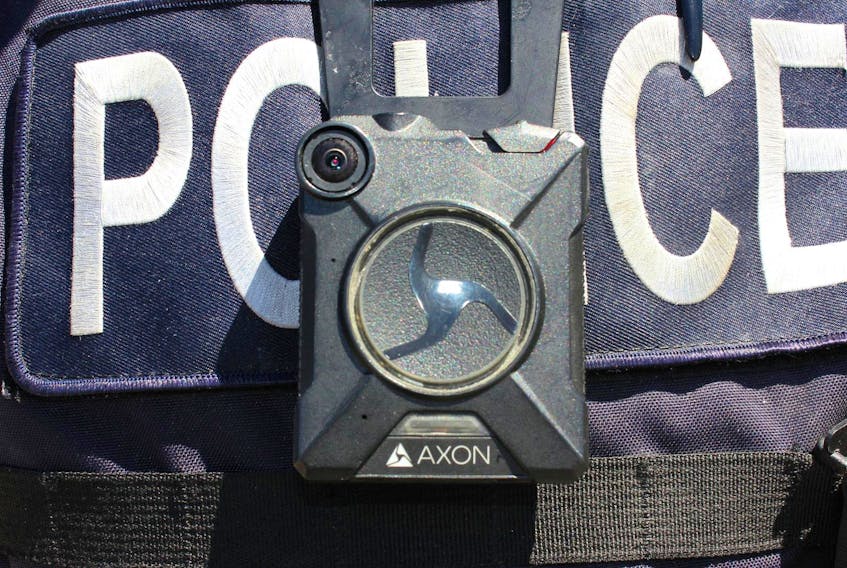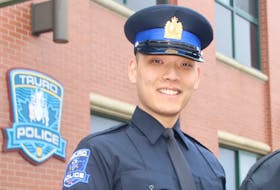Despite it being recommended in the recent street check report, Halifax Regional Police say there isn’t strong evidence that body cameras would improve public trust, confidence and safety in interactions with the force.
“We have looked at body worn video from an HRP perspective, and for us, the literature and the Canadian experience thus far shows mixed results at best,” said spokesman Const. John Macleod.
“Many other Canadian police services have taken a similar position, informed by literature and cost estimates that it is expensive, and the benefits are unclear.”
"people viewing the video camera (footage) are still going to be practicing racist policies or practicing in a discriminatory way"
- Angela Simmonds, African Nova Scotian Decade for People of African Descent Coalition
The Halifax, Nova Scotia: Street Checks report by Scot Wortley included a number of recommendations for police on how to improve accountability and transparency, especially regarding interactions with African Nova Scotians.
According to the report, several community members called for body cameras to be introduced.
Halifax police have discussed the technology before. Last time, it wasn’t necessarily the up-front cost, but the operating costs that was the main problem with body cameras, according to chair of the police commision Steve Craig. That lead to a proposed pilot project being cancelled in 2017 by then HRP chief Michael Blais.
The individual camera units are not the biggest cost, it’s the storage of the data and video collected by the cameras.

Keeping that information and data secure is a major privacy concern, said Wayne MacKay, professor emeritus of law at Dalhousie University.
“How do you ensure it doesn’t invade people’s privacy inappropriately? How do you make sure it doesn't get into the wrong hands? Both these things are financial and logistical issues as well,” he said.
Pilot projects and studies have been conducted by police departments in several cities across Canada, with mixed results.
Value for investment was the biggest concern in Montreal. Officers would often not have the time to turn on the camera during an altercation, according to a report on their pilot program. This lead to the conclusion that the body cameras were not worth the cost. However, these problems could be worked out with time if the programs move past the pilot stage, MacKay said.
“I think some of the turning it on could become such an automatic thing that that really wouldn’t delay things,” he said. “So I think those kind of problems might be overcome.”
At least one police service in Nova Scotia already uses body cameras. Kentville has equipped all their officers with the devices.
Calgary also pushed ahead with a two-year pilot program, which aimed to have all officers equipped with body cameras by the end of 2019.
But Angela Simmonds, a lawyer and member of the African Nova Scotian Decade for People of African Descent Coalition said she remains unconvinced by the technology.
“People think technology can fix a lot of the problems and answer to our human feelings and our lived experiences,” she said. “And so my caution to that would be that people viewing the video camera (footage) are still going to be practicing racist policies or practicing in a discriminatory way that’s impacting the community and people of colour.”
People are rightly concerned about police accountability, said MacKay. “Surely there must be other ways in which we can make the whole process more transparent and keep confidence with the police force that if things go wrong, that they can be challenged.”
Anti-bias training for officers is the other recommendation proposed in the Wortley report that Justice Minister Mark Furey has said will be adopted.
All other recommendations from the Halifax street check report are being considered, according to Craig. The police commission is next scheduled to meet in early May, while Furey’s working group is assessing the recommendations in the Wortley report, he said.
RELATED:









